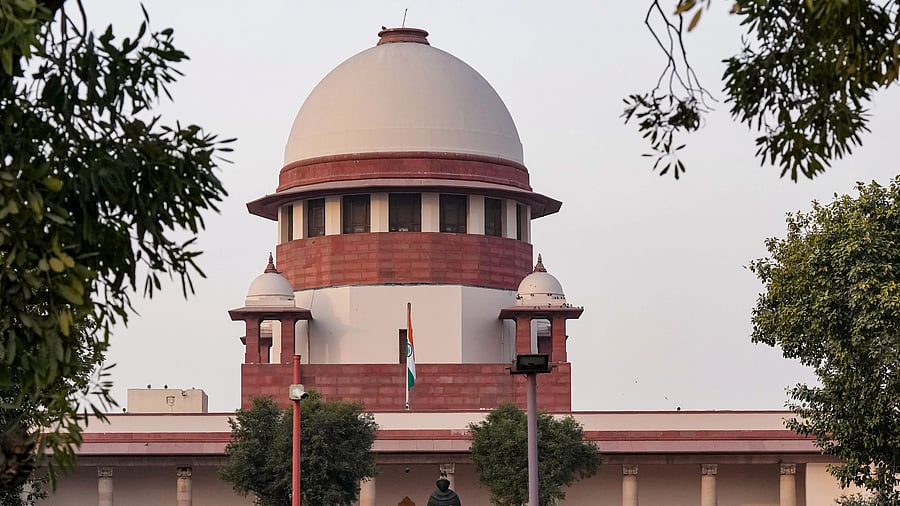
The Supreme Court of India.
Credit: PTI File Photo
New Delhi: The Supreme Court on Tuesday directed all the States and Union Territories to file status reports on the steps taken to augment the disposal of cheque bounce cases.
A bench of Justices Vikram Nath and Sandeep Mehta passed the order while hearing a suo motu matter concerning expeditious trial of cases under Section 138 of the Negotiable Instruments Act, 1881.
Section 138 of the Act deals with dishonour of cheque for insufficiency of funds.
Senior advocate Sidharth Luthra, assisting the court as an amicus curiae, referred to the apex court's May 2022 order which, as a pilot study, directed the constitution of 25 special courts with retired judicial officers in five states for expeditious disposal of these cases.
"We have to see whether the pilot project is working or not," Luthra said.
He said he has filed an application in the matter.
"We want a status report setting out the steps taken to increase disposal... data as regards vacancies and appointments," he said.
The application also asked the court to consider extending the scheme of appointment of retired officers of higher judicial service category within 5 years for appointment as Special Judicial Magistrates for a further time period in the five States of Maharashtra, Delhi, Gujarat, Uttar Pradesh and Rajasthan, which are subject matter of the pilot study.
The bench directed all the States, Union Territories and registrar general of the high courts to provide the necessary status reports within six weeks.
It posted the matter after six weeks.
In its May 2022 order, the top court said the special courts under the NI Act would be set up in Maharashtra, Delhi, Gujarat, Uttar Pradesh and Rajasthan in view of a large number of pending cases.
"The pilot study shall be conducted in 25 special courts in total. One special court shall be established in each of the five judicial districts which have been identified as having the highest pendency by each of the five high courts of the states with the highest pendency of NI Act cases," it said.
